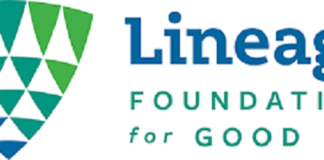
By Paul Damaren, Chief Revenue Officer at RizePoint
The food industry faces a variety of challenges, but none are greater than the need to prioritize safety and quality, maintaining high-quality standards while scaling production, introducing new products, providing exceptional customer service, and meeting evolving consumer demands.
The good news is that technological advancements are helping food businesses rise to the occasion, and brands that adopt cutting-edge tech solutions are able to elevate their quality management programs — and efforts — significantly. Incorporating tech tools — including artificial intelligence (AI), the Internet of Things (IoT), blockchain, and machine learning — is a game changer, making food businesses safer, and improving production processes, quality control, and supply chain management.
Technology is significantly improving quality management
Safety and quality should remain a top priority for all food businesses. It’s no longer enough to audit, inspect, and track compliance with a pencil and a clipboard. Businesses must lean into tech advancements, which boost efficiency, accuracy, and transparency, providing comprehensive, real-time data across an enterprise.
Also, food businesses need to ensure that everyone they’re working with — from suppliers to distributors — are aligned on their commitment to gold standard safety and quality. Any weak link in the supply chain can jeopardize the integrity of the food, leaving end-users vulnerable.
Food businesses need comprehensive digital quality management solutions that:
- Are made specifically for this sector, addressing their unique challenges, like food quality software.
- Offer holistic features — like audit management, compliance tracking, risk assessment, supplier quality management, and quality control — all in one easy-to-use solution.
- Include mobile auditing features to enhance on-site inspection efficiency, which is crucial for maintaining quality in fast-paced production environments.
- Feature compliance and reporting capabilities to ensure adherence to the latest regulatory requirements.
Tech integration has been transformative and exciting
The integration of technology in the food sector has been transformative and exciting. For instance, automation has offered solutions for more efficient processing, packaging, and distribution. Artificial intelligence and machine learning are being used for tasks ranging from predictive maintenance of equipment to quality control and yield optimization. And these technologies are giving business owners critical data to drive more informed decision-making.
In addition, machine learning algorithms can predict food safety risks based on various parameters, such as storage conditions, handling, etc. IoT devices monitor safety and quality parameters, including temperature, humidity, and vibration, in real-time to identify (and resolve) any risks. IoT provides constant feedback, allowing food businesses to act quickly to prevent safety breaches and quality degradation.
Blockchain can also provide food authentication through increased transparency and enhanced food traceability. Food brands — including restaurants and retailers — can leverage blockchain technology to ensure the food they’re getting is safe, authentic, and high-quality. Blockchain can trace food back to its source to prevent food fraud and increase food safety. As foods reach different checkpoints along the supply chain, data is documented in blockchain ledgers, providing real-time visibility during every step of each product’s journey. As a result, food brands can easily and accurately identify potential contamination, mishandling, and/or errors. Since blockchain technology integrates seamlessly with third-party verification systems, it helps eliminate fraud and validate compliance.
Advanced technologies are enabling better tracking, traceability, and management of the supply chain, ensuring that products are being produced, processed, packaged, and distributed safely and in adherence to quality standards.
Technology is revolutionizing food safety and quality software
Using the latest and greatest technological advancements to adhere to quality standards will help food brands demonstrate their commitment to quality, safety, and compliance. In fact, technology is transforming the way organizations tackle their safety and quality programs and is revolutionizing quality management solutions.
Quality management tools have become much more comprehensive, providing multiple tools packaged together in a single intuitive solution. This empowers food brands to streamline their quality management processes, aligning with industry-specific requirements. The addition of robust compliance management features help brands adhere to increasingly stringent, ever-evolving food safety standards. And that’s reassuring for their customers and end-users — including the retailers that sell the products, the restaurants that serve them, and the consumers that eat and drink them — who can feel comfortable and confident that they’re getting safe, high-quality foods.
Brands can leverage powerful solutions on-the-go
In the coming year, more food brands will adopt mobile auditing solutions within quality monitoring programs. This feature will allow organizations to facilitate real-time data collection and reporting, a critical factor for on-site inspections in food production, processing, and manufacturing plants, as well as in food retail environments. This ensures that the quality control processes are more efficient, accurate, and compliant with regulatory standards.
Supply chain management has also seen a technological overhaul around quality assurance, which is a positive and necessary development. Companies across the supply chain are more aligned in upholding the highest quality and compliance standards — and insisting that everyone involved in the supply chain remains compliant. This focus is crucial in an industry where the quality of the end product is directly influenced by the quality of the sourced materials.
Luckily, today’s technologies have become more affordable, accessible, and intuitive, making them much more attainable for organizations of all sizes and budgets. Food brands would be wise to adopt innovative technologies including — especially! — digital quality management solutions. These solutions have become essential to ensure product safety, quality, and compliance and optimize organizations’ efficiency, accuracy, transparency, traceability, and overall successes moving forward.
From reducing safety risks to improving transparency and traceability across the entire supply chain, there’s no limit to what food brands can do with these sophisticated technologies.
 Paul Damaren is Chief Revenue Officer at RizePoint, a technology leader in the food safety, quality management, compliance, and social responsibility space. RizePoint’s comprehensive suite of quality management software solution tools is empowering businesses — including Starbucks, Wendy’s, Hard Rock International, and more — to streamline their quality management processes, aligning with industry-specific requirements.
Paul Damaren is Chief Revenue Officer at RizePoint, a technology leader in the food safety, quality management, compliance, and social responsibility space. RizePoint’s comprehensive suite of quality management software solution tools is empowering businesses — including Starbucks, Wendy’s, Hard Rock International, and more — to streamline their quality management processes, aligning with industry-specific requirements.








